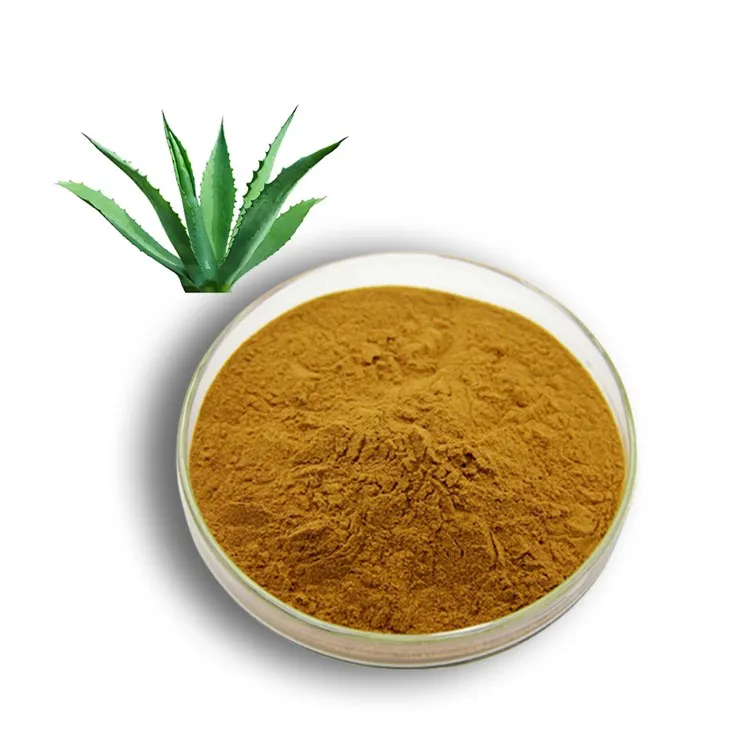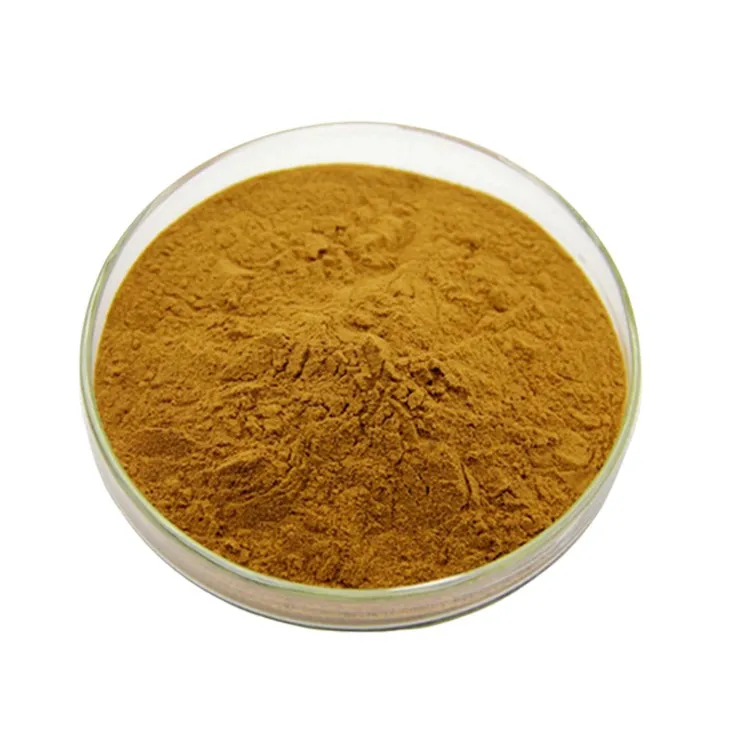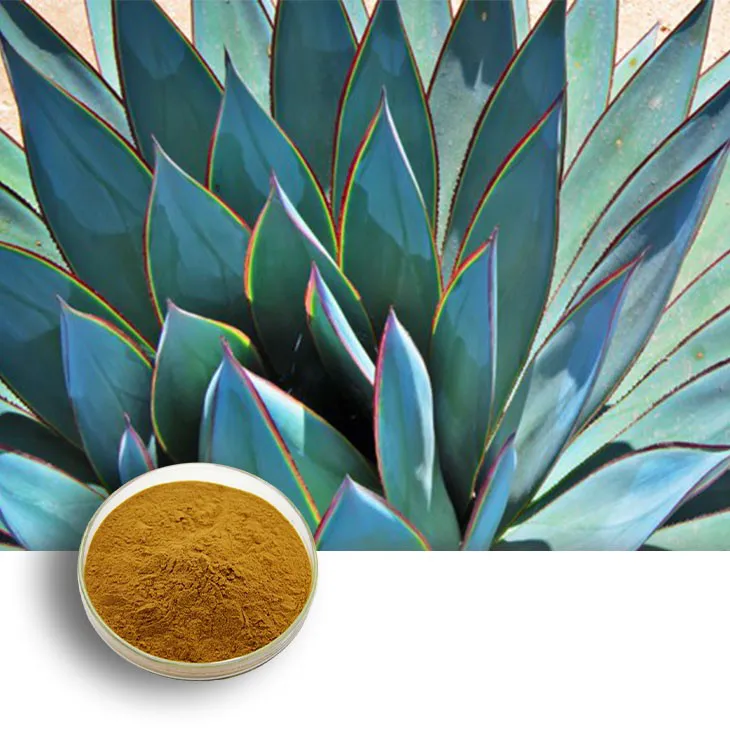- 0086-571-85302990
- sales@greenskybio.com
Is aguaje extract beneficial for diabetes? Are these all safe and applicable for diabetic patients?
2024-11-12

1. Introduction
Diabetes is a chronic metabolic disorder that affects millions of people worldwide. Management of diabetes typically involves lifestyle modifications, including diet, exercise, and in many cases, medication. There has been growing interest in natural products and their potential role in diabetes management. Aguaje Extract is one such product that has come under the spotlight. This article aims to comprehensively analyze whether Aguaje Extract can offer real benefits to diabetes sufferers, considering various aspects such as its impact on blood glucose levels, metabolic functions, and its safety profile.

2. What is Aguaje?
Aguaje (Mauritia flexuosa) is a palm tree native to the Amazon rainforest. It has been an important part of the diet and traditional medicine of indigenous communities in the region for centuries. The fruits of the aguaje tree are rich in nutrients, including vitamins (such as vitamin A, C, and E), minerals (like potassium and iron), and fatty acids. The extract is obtained from different parts of the plant, usually the fruit, and is believed to contain bioactive compounds that may have various health - promoting properties.

3. Potential Role in Reducing Blood Glucose Levels
3.1. Phytochemicals and Glucose Metabolism
Aguaje Extract contains several phytochemicals that may play a role in glucose metabolism. For example, it may contain phenolic compounds that have antioxidant properties. These antioxidants can help reduce oxidative stress in the body, which is often associated with diabetes. High levels of oxidative stress can disrupt normal cellular functions, including those involved in insulin signaling and glucose uptake by cells. By reducing oxidative stress, aguaje extract may potentially improve insulin sensitivity, which in turn could lead to better blood glucose control.
Some studies have also suggested that certain compounds in aguaje extract may interact with enzymes involved in carbohydrate metabolism. For instance, they may inhibit alpha - glucosidase, an enzyme that breaks down complex carbohydrates into simple sugars. By inhibiting this enzyme, the absorption of glucose from the digestive tract may be slowed down, resulting in a more gradual increase in blood glucose levels after a meal. This can be beneficial for diabetic patients, as it helps prevent rapid spikes in blood sugar.
3.2. Evidence from Animal Studies
Several animal studies have been conducted to investigate the effect of aguaje extract on blood glucose levels. In some of these studies, diabetic rats or mice were given aguaje extract over a period of time. The results showed that, in some cases, there was a significant reduction in fasting blood glucose levels compared to the control group. Additionally, improvements in glucose tolerance were observed, indicating that the animals' ability to handle a glucose load (such as after consuming a sugary meal) was enhanced.
However, it is important to note that animal studies have limitations when it comes to extrapolating results to humans. The physiology of animals and humans can differ significantly, and factors such as differences in metabolism, diet, and lifestyle need to be considered. Nevertheless, these animal studies provide some initial evidence that aguaje extract may have a positive impact on blood glucose levels.

4. Enhancing Metabolic Functions Relevant to Diabetes
4.1. Lipid Metabolism
Diabetes is often associated with abnormal lipid metabolism, including high levels of triglycerides and low - density lipoprotein (LDL) cholesterol, and low levels of high - density lipoprotein (HDL) cholesterol. Aguaje extract may have a beneficial effect on lipid metabolism. The fatty acids present in the extract, such as omega - 3 and omega - 6 fatty acids, can play a role in regulating lipid levels in the body.
Omega - 3 fatty acids, in particular, are known for their anti - inflammatory properties. Inflammation is a key factor in the development and progression of diabetes and its complications. By reducing inflammation, omega - 3 fatty acids can help improve insulin sensitivity and lipid metabolism. Some studies suggest that aguaje extract may increase the levels of HDL cholesterol while reducing triglyceride levels, which is beneficial for overall cardiovascular health and is also relevant in the context of diabetes management.
4.2. Insulin Signaling and Pancreatic Function
Proper insulin signaling is crucial for glucose homeostasis. Aguaje extract may potentially enhance insulin signaling pathways. It could do this by protecting pancreatic beta - cells, which are responsible for producing insulin. Some bioactive compounds in the extract may have a cytoprotective effect on beta - cells, preventing their damage from factors such as oxidative stress and inflammation.
There is also evidence to suggest that aguaje extract may stimulate the secretion of insulin in a more regulated manner. This can help ensure that there is an adequate supply of insulin in the body to maintain normal blood glucose levels. However, more research is needed to fully understand the mechanisms by which aguaje extract affects insulin signaling and pancreatic function.
5. Safety Profile of Aguaje Extract
5.1. General Safety Considerations
In general, aguaje has been consumed as part of the traditional diet in Amazonian communities for a long time without reports of major adverse effects. However, when considering its use as an extract for diabetes management, several safety aspects need to be examined.
One concern is the potential for allergic reactions. Some people may be allergic to components of the aguaje plant. Symptoms of an allergic reaction can range from mild skin rashes to more severe respiratory problems or anaphylactic shock in rare cases. Therefore, it is important for individuals considering using aguaje extract to be aware of any potential allergies.
5.2. Interaction with Medications
Diabetic patients often take medications to control their blood glucose levels. There is a possibility that aguaje extract may interact with these medications. For example, if it has a hypoglycemic effect (i.e., it lowers blood sugar), it could potentiate the action of diabetic medications, leading to an increased risk of hypoglycemia (low blood sugar). Hypoglycemia can cause symptoms such as dizziness, weakness, sweating, and in severe cases, loss of consciousness.
It is also important to consider potential interactions with other medications that diabetic patients may be taking for related conditions, such as medications for high blood pressure or heart disease. Some compounds in the aguaje extract may interfere with the metabolism or effectiveness of these medications. Therefore, it is crucial that patients consult their healthcare providers before starting to use aguaje extract.
6. Existing Research Findings Regarding Applicability and Safety for Diabetic Patients
6.1. Clinical Trials
At present, there are relatively few clinical trials specifically investigating the use of aguaje extract in diabetic patients. The existing trials are often small - scale and have some limitations. However, some preliminary results are encouraging.
In a small - scale clinical trial, diabetic patients who were given aguaje extract in addition to their regular diabetes treatment showed a trend towards better blood glucose control compared to those who received only the standard treatment. The extract was well - tolerated in most patients, with only a few reporting mild gastrointestinal side effects such as nausea or diarrhea.
Another trial focused on the impact of aguaje extract on markers of metabolic health, including blood glucose, lipid levels, and inflammation. Although the results were not conclusive, there were some indications that the extract may have a positive effect on these parameters in diabetic patients.
6.2. Need for Further Research
Despite the promising initial findings, more research is clearly needed. Larger - scale, well - designed clinical trials are required to confirm the efficacy of aguaje extract in diabetes management. These trials should also focus on long - term safety, as the long - term effects of using the extract are not well - understood at present.
Research should also aim to identify the specific bioactive compounds in aguaje extract that are responsible for its potential benefits. This will help in developing more targeted and standardized products for diabetes treatment. Additionally, studies on different formulations of the extract (e.g., capsules, tablets, or liquid forms) and their bioavailability are needed to optimize its use in diabetic patients.
7. Conclusion
In conclusion, aguaje extract shows potential in diabetes management in terms of its possible role in reducing blood glucose levels, enhancing metabolic functions relevant to diabetes, and its relatively good safety profile in general. However, the current evidence is not conclusive, especially when it comes to its applicability and safety for diabetic patients. While some animal studies and small - scale clinical trials suggest benefits, more research, particularly large - scale clinical trials, is needed to fully understand its efficacy and safety. Diabetic patients should be cautious about using aguaje extract and should always consult their healthcare providers before starting any new supplement, especially considering the potential interactions with medications.
FAQ:
Q1: What is aguaje extract?
Aguaje extract is derived from the aguaje fruit. It contains various nutrients and bioactive compounds. However, more research is needed to fully understand its composition and potential effects on the human body.
Q2: How might aguaje extract reduce blood glucose levels?
Some studies suggest that certain components in aguaje extract may interact with the body's metabolic pathways related to glucose regulation. For example, it could potentially enhance insulin sensitivity or affect carbohydrate metabolism. But the exact mechanisms are not yet fully understood and more research is required.
Q3: Is aguaje extract safe for diabetic patients?
While there is no conclusive evidence indicating that aguaje extract is harmful to diabetic patients, its safety has not been comprehensively established. Some people may be allergic to it, and potential interactions with medications or other health conditions need to be considered. So, diabetic patients should consult their healthcare providers before using it.
Q4: Are there any side effects of aguaje extract for diabetic patients?
Since research on aguaje extract in relation to diabetes is limited, the possible side effects are not well - known. However, in general, any new supplement can cause unexpected reactions in the body. It could potentially cause digestive issues, allergic reactions, or interfere with other medications a diabetic patient may be taking.
Q5: Does aguaje extract enhance metabolic functions relevant to diabetes?
There is some indication that it might play a role in enhancing metabolic functions related to diabetes. It may influence lipid metabolism and improve overall metabolic health, which could indirectly benefit diabetic patients. But again, more research is needed to confirm these potential effects.
Related literature
- The Potential of Aguaje Extract in Diabetes Management: A Review"
- "Aguaje Extract: Composition and its Implications for Diabetic Health"
- "Safety and Efficacy of Aguaje Extract in Diabetic Patients: Current Research"
- ▶ Hesperidin
- ▶ citrus bioflavonoids
- ▶ plant extract
- ▶ lycopene
- ▶ Diosmin
- ▶ Grape seed extract
- ▶ Sea buckthorn Juice Powder
- ▶ Beetroot powder
- ▶ Hops Extract
- ▶ Artichoke Extract
- ▶ Reishi mushroom extract
- ▶ Astaxanthin
- ▶ Green Tea Extract
- ▶ Curcumin Extract
- ▶ Horse Chestnut Extract
- ▶ Other Problems
- ▶ Boswellia Serrata Extract
- ▶ Resveratrol Extract
- ▶ Marigold Extract
- ▶ Grape Leaf Extract
- ▶ blog3
-
Cranberry Plants and Skin - care Products.
2024-11-12
-
Acerola Juice Powder
2024-11-12
-
Phellodendron Extract
2024-11-12
-
Plantain extract
2024-11-12
-
Yam Extract
2024-11-12
-
Cocoa Extract
2024-11-12
-
Red Vine Extract
2024-11-12
-
Aguaje Extract
2024-11-12
-
Alisma Extract
2024-11-12
-
Cat Claw Extract
2024-11-12
-
Propolis Extract Powder
2024-11-12




















